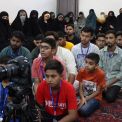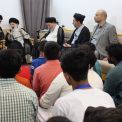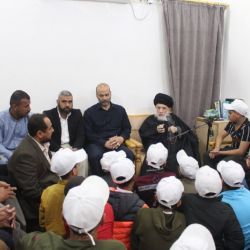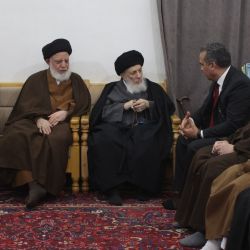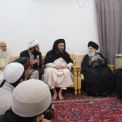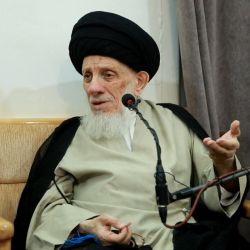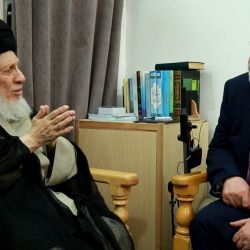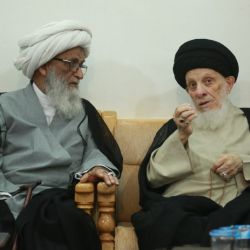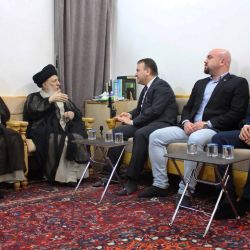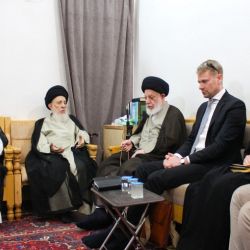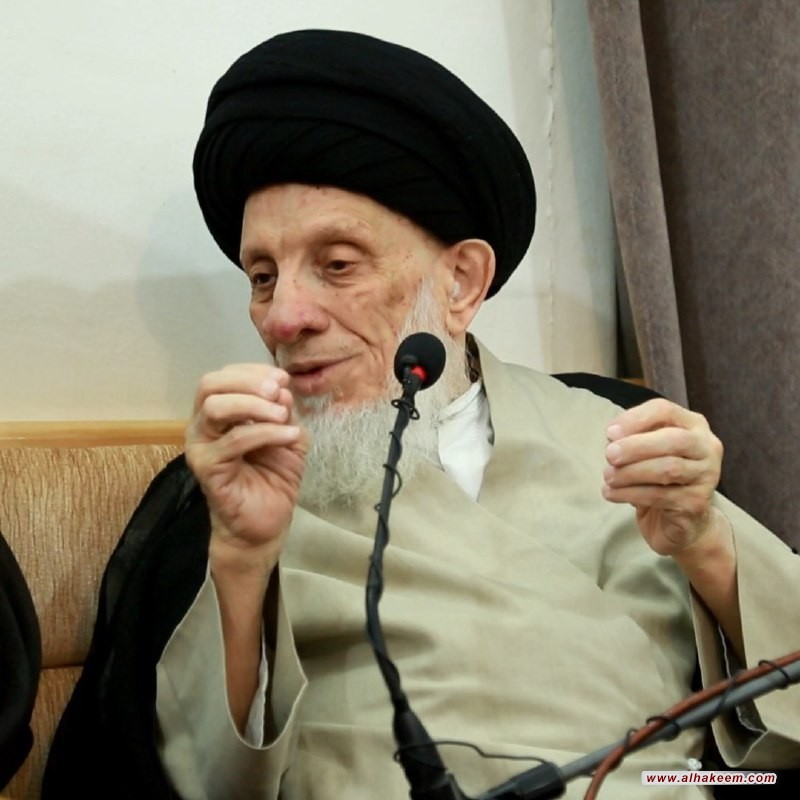
His Eminence Grand Ayatollah Sayyid Muhammad Saeed al-Hakeem spoke to male and female preachers from Pakistan of the necessity of reaching the remote areas of Pakistan in order to teach the people there the Islamic laws, and to invite them to the True Path, and to propagate to them the message of the Ahlulbait (peace be upon them).
This advice was also directed especially towards the female preachers. After exerting their efforts in learning and studying, they must undertake their duties as preachers, by explaining the Islamic laws pertaining to women, so that the women can benefit from them in those areas. His Eminence continued to advise preachers towards having good behavior and etiquettes, humility, and keeping close to other believers, so that every one of them can fulfil their duties towards God in a manner that pleases Him, the Prophet and the Infallibles (peace be upon them all).
At the end, His Eminence supplicated to God that He accept the guests’ ziyarah and good deeds, and He answers their calls, and He supports them in their endeavors and duties, while interacting with others with love, compassion, honesty and humility. He prayed that He gives them the fruit of their good acts in this life and in the Hereafter. He is, indeed, All-Hearing, All-Knowing.

